Our screenings are held at multiple venues around Chicago. This season you can find us at:
• The Music Box Theatre
3733 N Southport Ave — Directions • Parking • Covid Policies
Tickets: $10 – $14
• The Auditorium at Northeastern Illinois University (NEIU) (inside of Building E)
3701 W Bryn Mawr Ave — Directions • Campus Map • Covid Policies
Tickets: $10
Want to attend our screenings but having financial hardships? Contact info@chicagofilmsociety.org
SEASON AT A GLANCE
September▼
Sat 9/3 at 11:30 AM
Foolish Wives ………… Music Box
Thu 9/15 – Fri 9/16 – Sat 9/17 – Sun 9/18
CELLULOID NOW
Wed 9/21 at 7:30 PM
What Price Hollywood? ………… NEIU
Mon 9/26 at 7:00 PM
Within Our Gates………… Music Box
Wed 9/28 at 7:30 PM
White Line Fever………… NEIU
October ▼
Sun 10/2 at 7:00 PM
The Masque of the Red Death………… Music Box
Wed 10/5 at 7:30 PM
Vengeance is Mine………… NEIU
Sat 10/8 at 11:00 AM
Home Movie Day………… Chicago History Museum
Wed 10/12 at 7:30 PM
Shanghai Blues………… NEIU
Sat 10/15 at 11:30 AM
Below the Surface………… Music Box
Wed 10/26 at 7:30 PM
Central Airport………… NEIU
November ▼
Sat 11/12 at 11:30 AM
The Wind………… Music Box
Wed 11/16 at 7:30 PM
Take a Letter, Darling………… NEIU
Wed 11/23 at 7:30 PM
It’s a Gift………… NEIU
Mon 11/28 at 7:00 PM
Love Streams………… Music Box
December ▼
Thu 12/1 at 7:00 PM
Douglas Fairbanks in Robin Hood………… Music Box
Wed 12/7 at 7:30 PM
Hospital………… NEIU
Mon 12/12 at 7:00 PM
Double Feature…………Music Box
Tangerine + All About My Mother
Wed 12/14 at 7:30 PM
Stay Hungry………… NEIU
Wed 12/21 at 7:30 PM
Bachelor Mother………… NEIU
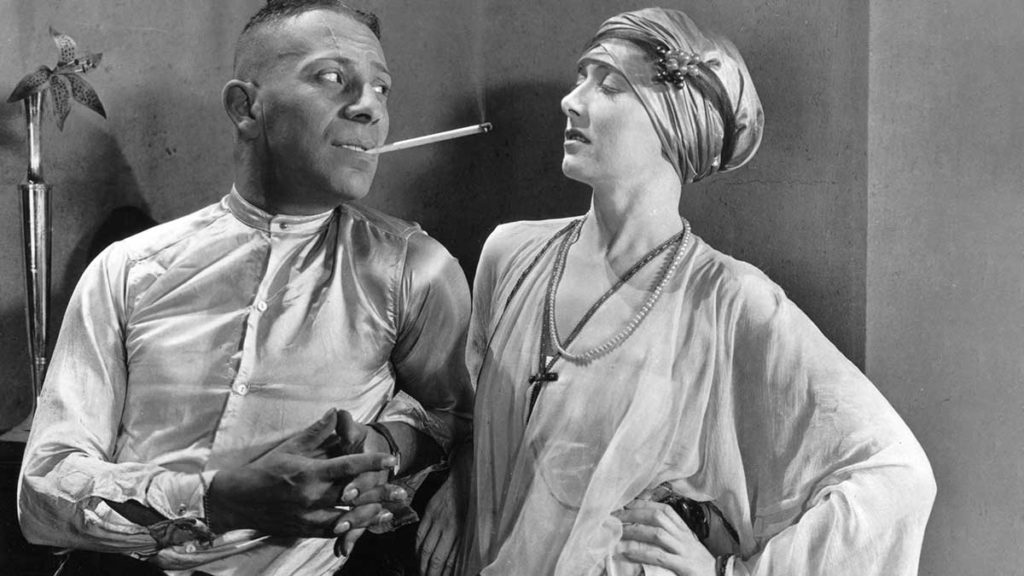
Saturday, September 3 @ 11:30am / Music Box Theatre
FOOLISH WIVES
Directed by Erich von Stroheim • 1922
When Erich von Stroheim directed his first feature, the studio brass at Universal prevailed upon him to change its title from The Pinnacle (a two-dollar word that the ticket-buying public might confuse with pinochle) to Blind Husbands. Von Stroheim was aghast, but the picture proved a commercial and critical juggernaut, and even he recognized the box office logic of christening its successor Foolish Wives. (The title was, in fact, his wife’s idea.) Initially planned as another tale of innocent Americans abroad seduced and abused by European ruffians, the scope of the film quickly swelled to imperial proportions. A replica of Monte Carlo was built on California’s Monterey Peninsula, and shooting continued for eleven months before the studio took away the punch bowl. By this time, Universal flacks had made ballyhoo lemonade from budgetary lemons, erecting a billboard in Times Square tallying the spiraling expenditure. When the picture was finally released, the ad copy boasted that von Stroheim was “going to make you hate him, even if it takes a million dollars of our money to do it.” They weren’t wrong: his character — a phony count, Wladislaw Sergius Karamzin, ensconced in a seaside villa with two comely “cousins,” who enraptures the wife of an American ambassador in a scheme to launder counterfeit currency — aroused near-unanimous condemnation among the patriotic press. “I recognized a great desire in the minds of the American people … for knowledge of life as it is. I tried to give it to them, the thing they wanted,” boasted von Stroheim, with predatory glee. “I still maintain they wanted it.” Chopped down successively during postproduction, release, and a scrapped sound-era reissue, Foolish Wives can never be summoned back in all its venal splendor. However, building upon Arthur Lennig’s heroic 1970 reconstruction, the San Francisco Silent Film Festival and the Museum of Modern Art have given Foolish Wives a major restoration in time for its centenary, returning color tints and hand-colored sequences to von Stroheim’s blood-and-caviar spectacle. (KW)
147 min • Universal Pictures • 35mm from San Francisco Silent Film Festival
Live musical accompaniment by Dennis Scott
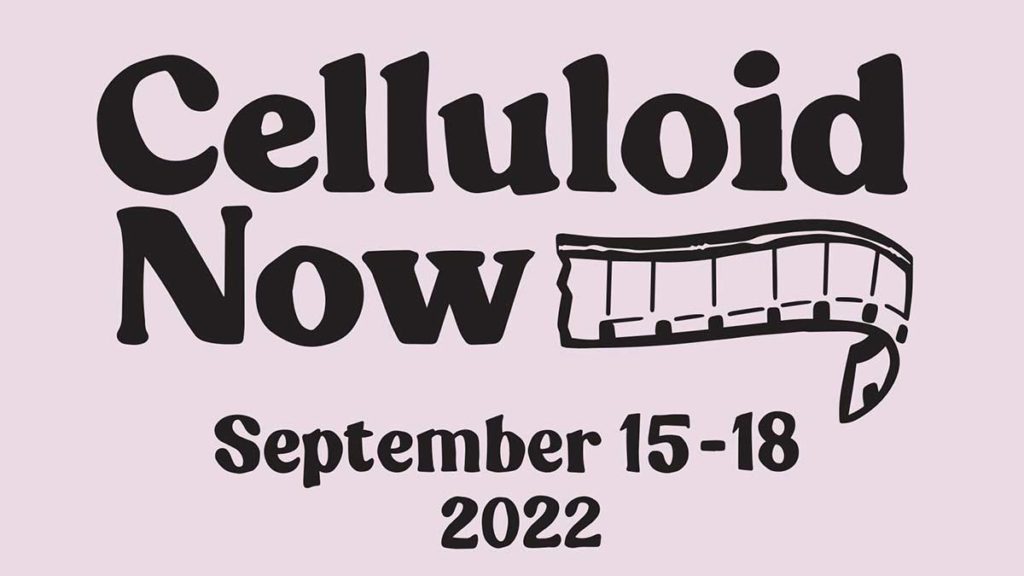
The Chicago Film Society is proud to announce Celluloid Now: four days of screenings, workshops, and other events showcasing the work of analog filmmakers and artists, alongside archival rediscoveries and restorations.
Screenings will be held across 3 venues:
Gene Siskel Film Center – Constellation – Chicago Cultural Center
More details at celluloidnow.org
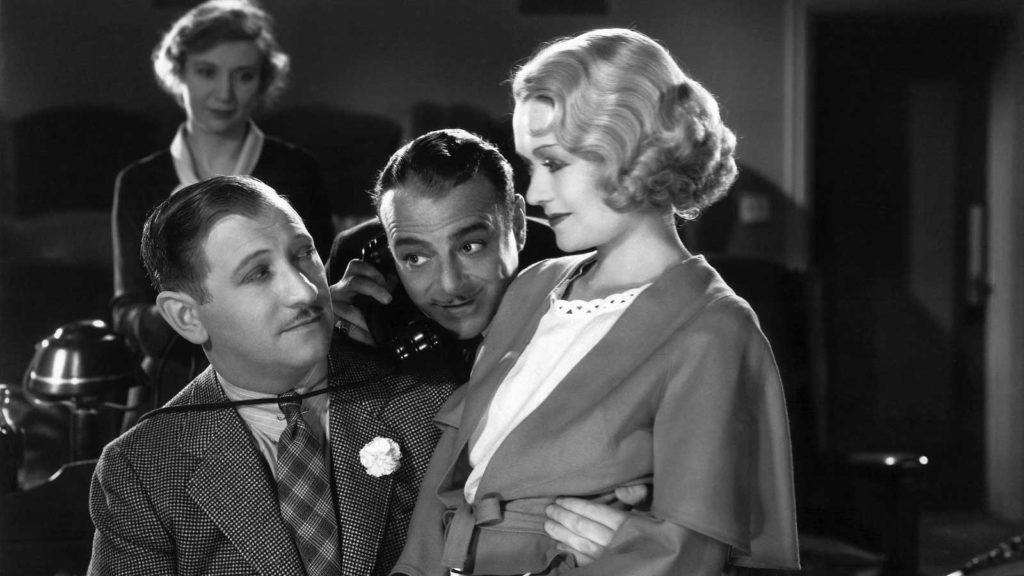
Wednesday September 21 @ 7:30pm / NEIU
WHAT PRICE HOLLYWOOD?
Directed by George Cukor • 1932
Officially, there have been four versions of A Star Is Born over the last eighty-five years, with Janet Gaynor, Judy Garland, Barbra Streisand, and Lady Gaga playing the ingénue who rises as her partner falls. (Malpaso diehards will long lament that the Beyoncé version under Clint Eastwood’s direction never materialized.) But the roots of this seemingly unkillable template go back further — to this 1932 pre-Code chestnut produced by David O. Selznick (who would oversee the 1937 version) and directed by George Cukor (who would assume the reins of the 1954 edition). Yet What Price Hollywood? is very much its own thing — a visually dense, fluidly conceived tour of the dark side of movieland, a (relatively) realistic reflection on the precarity of fame and favor in a company town. Screen veteran Constance Bennett convincingly portrays Mary Evans, a Brown Derby waitress who aspires to stardom from her cramped studio apartment. Her big break comes when director Max Carey (Lowell Sherman) tipsily invites her to accompany him to his premiere and later accedes to her request for a walk-on part. The road is rough, but Mary soon sets a land speed record for acting transformations that would go unchallenged until Naomi Watts’s Mulholland Dr. audition scene. Mary’s career takes off, while Max loses his to alcoholism. Cukor recalled that Sherman was “a very fine actor, but there was something about him, a slightly odious quality, that kept him from being a real star. It worked very well in this story.” Tragically, Sherman, a real-life alcoholic, would be dead in two years. Restored by the Library of Congress and The Film Foundation, with funding provided by the Hobson/Lucas Family Foundation(KW)
88 min • RKO-Pathé Pictures • 35mm from Library of Congress, permission Swank
Preceded by: “I’m Afraid to Come Home in the Dark” (Fleischer Studios, 1929) – 7 min – 16mm
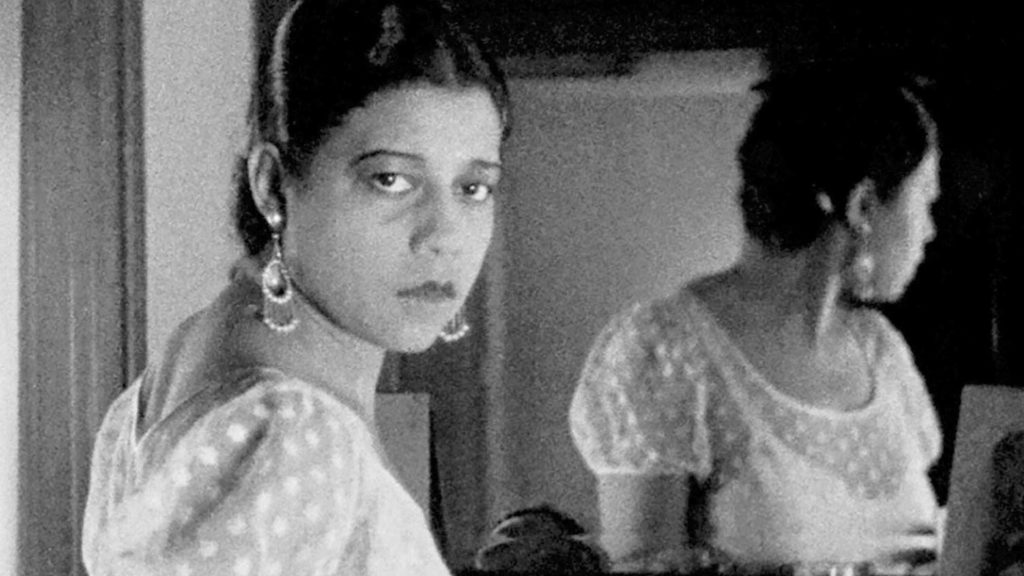
Monday, September 26 @ 7:00pm / Music Box Theatre
WITHIN OUR GATES
Directed by Oscar Micheaux • 1920
Oscar Micheaux was a pioneering filmmaker in every sense of the word — an independent Black writer/director/producer who made socially engaged melodramas for Black audiences and a literal pioneer who memorialized his tumultuous stint as a South Dakota homesteader in a series of self-published novels. Within Our Gates, Micheaux’s earliest surviving feature, is a characteristic mix of earnest uplift and righteous fury, a history lesson and an intra-community communiqué about the betrayal of the race from within and without, and finally, a patriotic ode to the horizons of Black excellence in spite of all that America has arrayed against it. Shot in Chicago in the aftermath of the deadly 1919 race riots, Within Our Gates opens with a wry reminder that the North is a land “where the prejudices and hatreds of the South do not exist—though this does not prevent the occasional lynching of a Negro.” Micheaux regular Evelyn Preer plays Sylvia Landry, an educated Black woman who returns to the South after a romantic betrayal and devotes her time to saving a rural school on the verge of closure. Upon returning north on a fundraising trip, Evelyn meets a passionate doctor but must flee again when an unsavory suitor from her past attempts blackmail. Micheaux often took a circuitous route from a story’s beginning to its end, and Within Our Gates has its share of peculiar choices — flashbacks within flashbacks, digressions and diatribes —but emerges as a powerful story of everyday people living in the shadow of terror and trauma. (KW)
79 min • Micheaux Book & Film Company • 35mm from Library of Congress
Live original score composed and performed by the Alvin Cobb, Jr. Trio
The Alvin Cobb, Jr. Trio, is a Chicago-based music group led by drummer/composer Alvin Cobb, Jr. featuring bassist/vocalist Katie Ernst and pianist Julius Tucker. Heavily inspired by straight-ahead jazz trio playing, their music also incorporates folk melodies, free improvisation, and modern Black music elements.
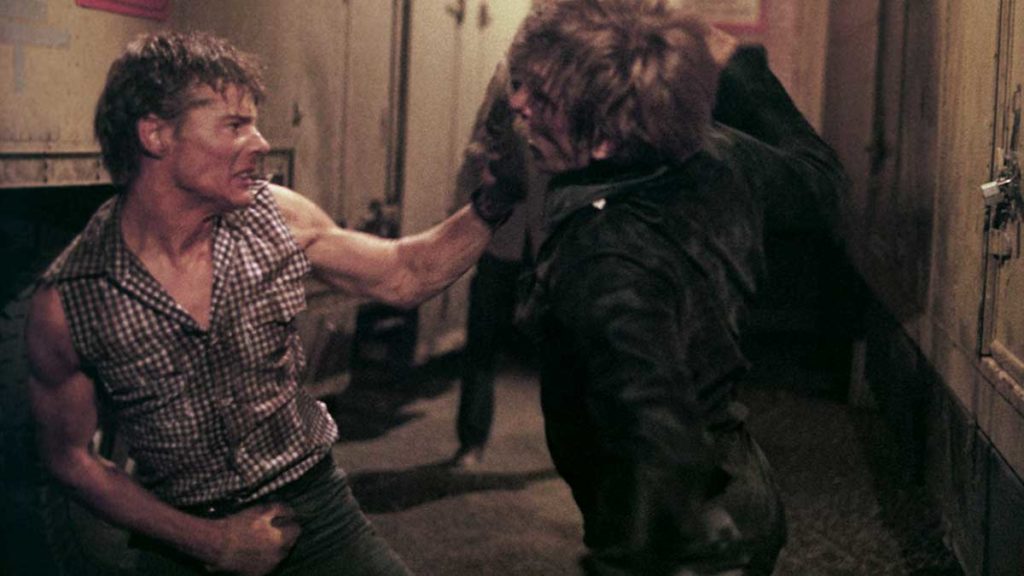
Wednesday, September 28 @ 7:30pm / NEIU
WHITE LINE FEVER
Directed by Jonathan Kaplan • 1975
If you loved Jonathan Kaplan’s Truck Turner but were disappointed to find out it didn’t have any actual trucks in it, have we got the movie for you. Falling midway along Kaplan’s path from director of exploitation pictures like The Student Teachers to his more “legitimate” dramas like Over the Edge and The Accused, White Line Fever keeps one foot firmly in both worlds. Described by the director as “the modern Western with trucks instead of horses” and strongly influenced by Sam Peckinpah, it follows a morally upright young truck driver (played by real-life bad guy Jan-Michael Vincent) who lands himself in a world of trouble by refusing to haul contraband goods. His steadfastness in the face of extreme abuse from trucking company goons, corrupt law enforcement, and corporate supervillains unites his fellow exploited truckers (but not before we get our ticket price’s worth of insane truck stunts). Like most good Westerns, White Line Fever deals in complicated dualities. “Consider the truck,” Kaplan seems to say, portraying them as diesel-spewing death-machines, violent tools of corporate interest, and — in heartbreakingly beautiful shots of them crossing the Arizona desert — symbols of something much harder to put into words. Featuring a supporting cast of Peckinpah regulars including Slim Pickens, R.G. Armstrong, and the late L.Q. Jones as a leering trucking company manager. (RL)
90 min • Columbia • 35mm from Sony Pictures Repertory, permission Swank
Preceded by: “Truck Song” (Bernard Wilets, 1988) – 13 min – 16mm
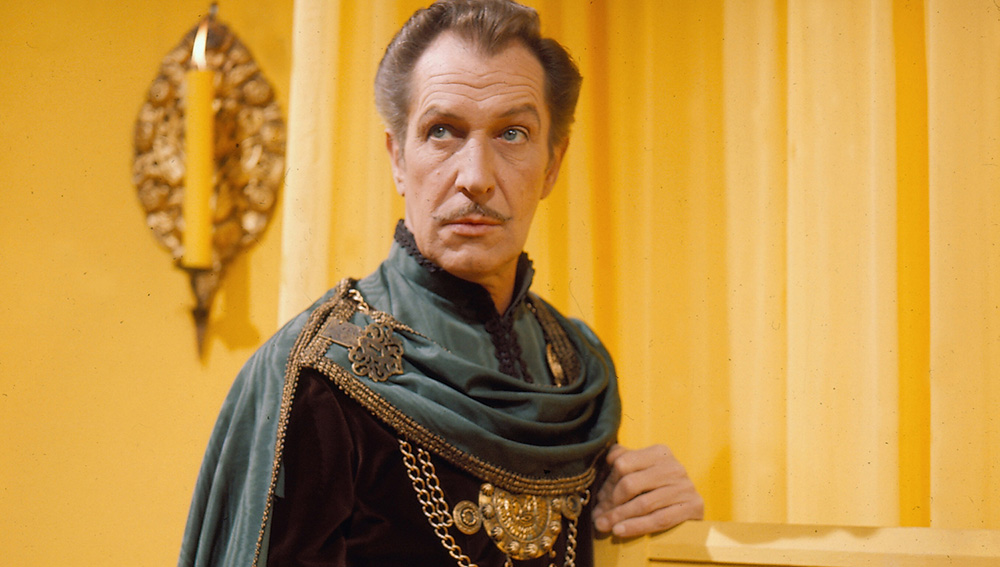
Sunday, October 2 @ 7:00pm / Music Box Theatre
THE MASQUE OF THE RED DEATH
Directed by Roger Corman • 1964
Between 1960 and 1965 Roger Corman, master of exploitation filmmaking and financing, made a string of eight films for low-budget powerhouse American International Pictures from unusual source material: the decidedly antiquarian (and public domain!) short stories of 19th-century writer Edgar Allan Poe. The seventh of these films, a comparatively more expensive production (only by Corman’s standards, mind you), is a medieval tale of a villainous prince and his castle guests attempting to outwit and outwait the mysterious “red death” which ravages the countryside around them. They pass the time with sadomasochistic masquerade balls and satanic rituals (“let me speak to you about the anatomy of terror” is a party pick-up line for the ages), but even deals with the devil may not be enough when the plague without becomes the plague within. Vincent Price is truly at home as Prince Prospero, a genteel monster who enjoys commanding his party guests to bark like dogs and mansplaining Satanism to Francesca, a young God-fearing girl he’s kidnapped from the village, played by a wide-eyed 19-year-old Jane Asher. Masque is spellbinding, wicked, and unabashedly indulgent — a groovier, trashier Powell & Pressburger film with comically large candles, ludicrous hats, and dripping dungeons for days. Scripted by Twilight Zone stalwart Charles Beaumont and shot in dazzling color by cinematographer (and future director) Nicolas Roeg, Masque screens in a new restoration which returns several censored scenes removed from the original release. Restored by the Academy Film Archive and The Film Foundation, with funding provided by the Hobson/Lucas Family Foundation.(RL)
90 min • American International Pictures • 35mm from the Academy Film Archive, permission Park Circus
Preceded by: “Bimbo’s Initiation” (Fleischer Studios, 1931) – 16mm – 7 min
Note: This wonderful film about a plague and the grotesque abuses of power on the part of a crazed plutocrat was originally scheduled to be the final film of our Spring 2020 season and the capsule was written long before COVID. Spooky!
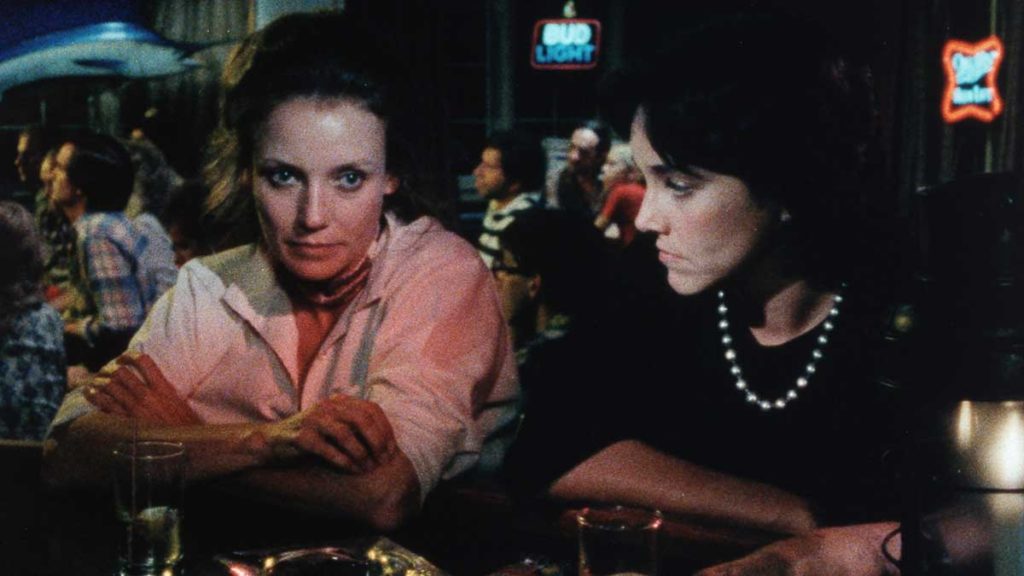
Wednesday, October 5 @ 7:30pm / NEIU
VENGEANCE IS MINE
Directed by Michael Roemer • 1984
Originally titled Haunted and released not in theaters but on television as part of the 1984 season of PBS’s American Playhouse series, this feature by director Michael Roemer (Nothing But a Man) has been little-seen since — until this year, when The Film Desk gave it its first-ever theatrical release and struck the new 35mm print that we will be screening. Though it was given Roemer’s preferred alternative title for the 2022 re-release, “haunted” is an apt description of the story’s dual leads, Jo (Brooke Adams) and Donna (Trish Van Devere), who meet by chance while Jo is visiting her sister in a sleepy Rhode Island town. Jo is haunted by her past: an adoptive mother who hated her, a teenage pregnancy given up for adoption, and an estranged abusive husband. Donna is haunted by untreated mental illness that leads her to emotionally abuse daughter Jackie (Ari Meyers) and husband Tom (Jon DeVries). Each woman’s impulse to intervene in the other’s life, to offer support and care, curdles into fear and resentment in the face of perverse personal demons. The film deftly develops its characters not through the heightened emotions of typical melodrama, but through subtle gestures and suggestions. In the film’s first ten minutes, Adams (Days of Heaven) has conveyed everything you need to know about Jo through three greetings and an eloquent series of halfhearted smiles and worried frowns. Donna’s discomfiting displays of terror and tenderness become visceral in the changing curve of Van Devere’s spine. Families, the ones we end up in both by choice and by happenstance become as thrilling and poignant as any high-concept action flick. (JR)
118 min • Post Mills Productions, Inc. • New 35mm from The Film Desk
Preceded by: short subject TBA
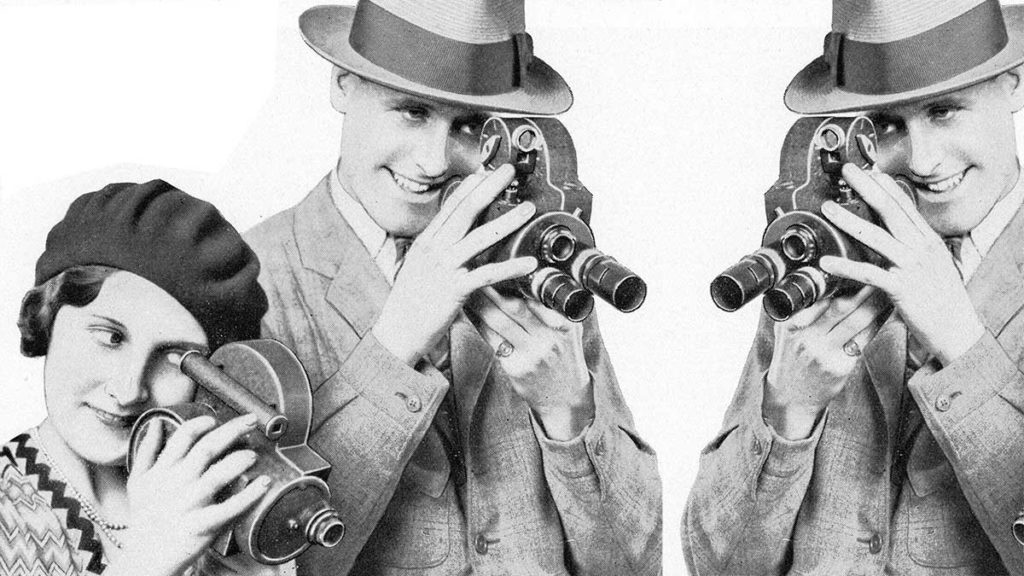
Saturday, October 8 at the Chicago History Museum, 1601 N Clark St
HOME MOVIE DAY 2022
Home Movie Day is dedicated to YOUR home movies. Drop in between 11 AM and 3 PM and archivists and projectionists will inspect and project any 16mm, 8mm, or Super 8 home movies that walk in the door.
Don’t have any films? Feel free to just sit back and enjoy the show!
Presented by Chicago Film Archives, Chicago Film Society, and the Chicago History Museum
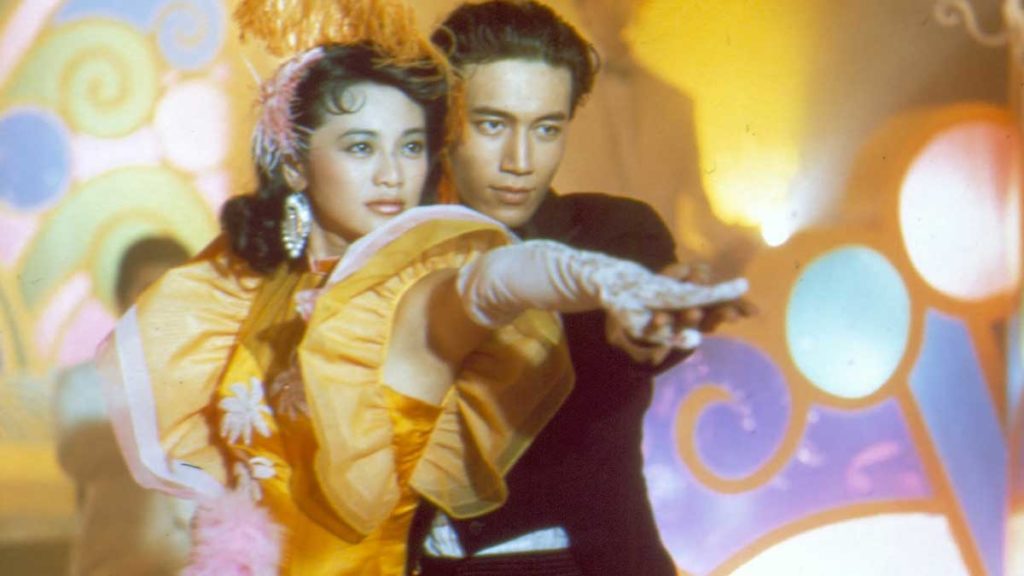
Wednesday, October 12 @ 7:30pm / NEIU
SHANGHAI BLUES
Directed by Tsui Hark • 1984
In Cantonese with English subtitles
The early years of iconoclastic Hong Kong filmmaker Tsui Hark’s career followed a strange path. After graduating from the University of Texas, a stint at NYC-based activist documentary outfit Third World Newsreel, a few politically explosive exploitation films, and success within the Hong Kong studio system, Tsui founded Film Workshop, the immensely popular production and distribution company responsible for most of the director’s films. Thanks to the likes of The Killer and Once Upon a Time in China, Film Workshop will always be associated with pioneering action cinema, but Tsui chose to launch his company with something different. An extended homage to M-G-M musicals and classic Hollywood screwball comedies, Shanghai Blues opens in 1937 in the titular city. Aspiring songwriter Gwok-man (Kenny Bee) is about to leave town to join the army when he encounters a charming young woman under a bridge during a bombing raid. The two agree to meet in the same spot when the war is over, but when he returns the woman he spent a decade pining for is nowhere to be found. Searching for her, he soon befriends nightclub singer Shu-Shu (Sylvia Chang) and a strange young woman inexplicably referred to as Stool (Cantopop icon Sally Yeh, hysterically funny), leading to a series of romantic entanglements and ludicrous physical comedy setpieces. This atypical focus on relationships would seem to mark Shanghai Blues as something of a departure for the director, but Tsui proves up to the task, gifting us a film that’s not only as kinetic and exhilarating as his action movies but also tender enough to stand with the very best romantic comedies. (CW)
103 min • Film Workshop • 35mm from the Academy Film Archive
Preceded by: Betty Boop in “Stopping the Show” [colorized version] (Fleischer Studios, 1932) – 8 min – 16mm
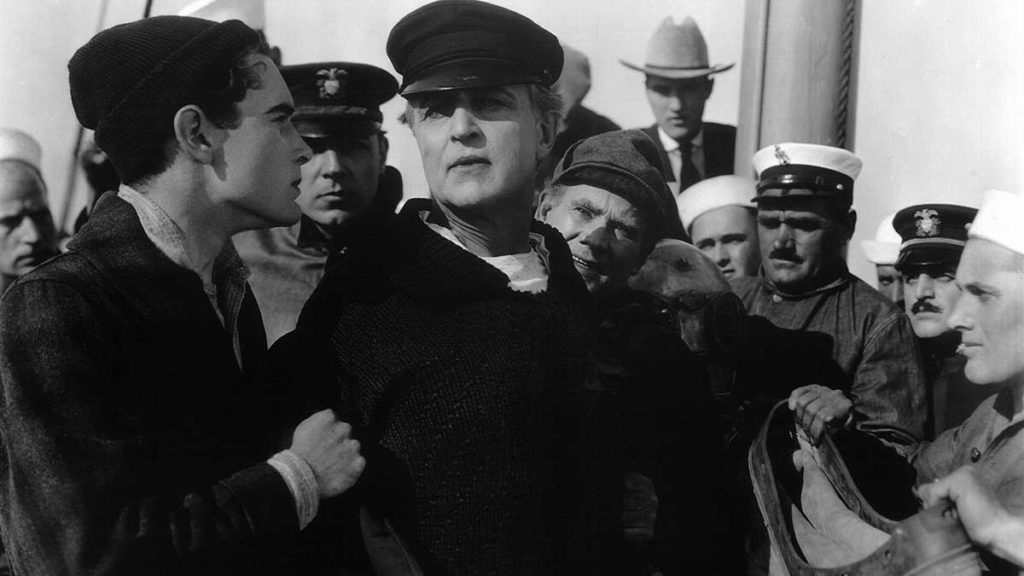
Saturday, October 15 @ 11:30am / Music Box Theatre
BELOW THE SURFACE
Directed by Irvin Willat • 1920
Off the coast of Maine lies a sleepy fishing village populated by men like Martin Flint (Hobart Bosworth), a professional diver who would be the dictionary definition of “salt of the earth” — if he could tolerate dry land long enough. After Martin’s improbable success in rescuing a sunken submarine and its crew from fifty-five fathoms gains him local notoriety, a shyster businessman tries to recruit him to be the public face of a treasure hunt scheme. Being a “staunch bulwark of honesty and responsibility,” Martin easily declines, but will his son escape temptation, particularly when flesh is on offer alongside money? Conceived by the same creative team responsible for the unrelentingly sadistic classic Behind the Door, Below the Surface confidently went into production before the earlier film was even released and went on to become another box office winner. Producer Thomas Ince promised the story of Below the Surface would be “strong but not gruesome,” and he mostly delivered—albeit not without succumbing ever so briefly to his instinctive predilection for brutal imagery in the climax. But in all other respects, it’s an eminently seaworthy vehicle for Bosworth, who performed his own diving stunts in a Culver City studio water tank. Seen in this brand-new restoration, Below the Surface may as well be its own kind of buried treasure — the rare silent feature whose original camera negative survives a century later and provides an experience of unparalleled visual magnificence. Restored by the San Francisco Silent Film Festival with the support of the National Film Preservation Foundation. (KW)
93 min • Thomas H. Ince Productions • 35mm from San Francisco Silent Film Festival
Live musical accompaniment by Dennis Scott
Preceded by: “San Francisco, the Golden Gate City” (1925) – 5 min – 35mm
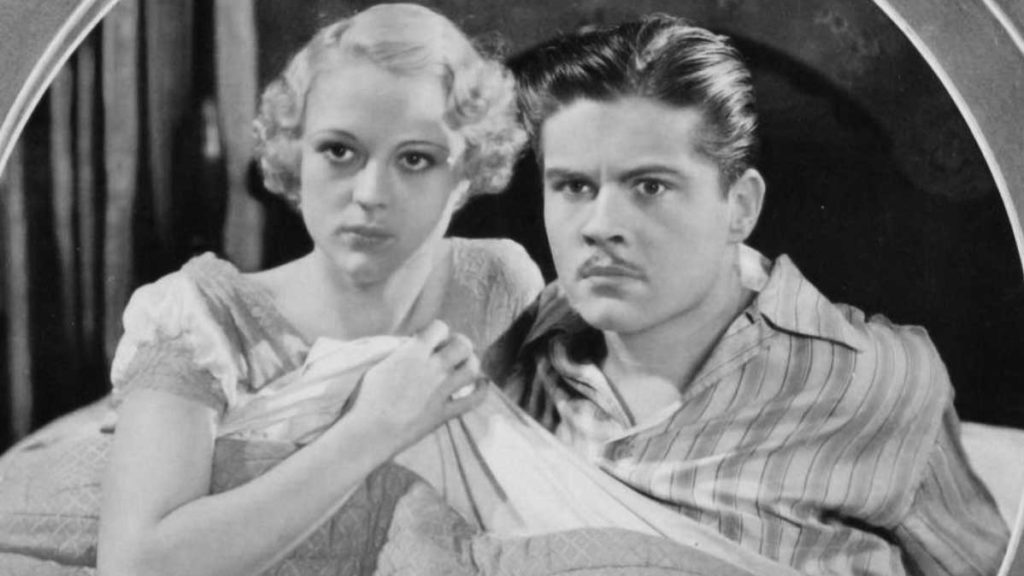
Wednesday, October 26 @ 7:30pm / NEIU
CENTRAL AIRPORT
Directed by William A. Wellman • 1933
At first blush, Central Airport seems like it’ll be a tarmac Grand Hotel, with a multitude of characters converging upon a single vibrant setting. But, in fact, the tumultuous first reel — an airplane has gone missing! — is soon revealed as an elaborate prologue to a sharp, focused character study that, like many of the finest pre-Code films, grafts Old Testament conflict onto a snazzy story of modern life. Richard Barthelmess plays Jim Blaine, the flier whose plane went missing. Since his carelessness probably killed some passengers, Jim’s days as a commercial pilot are kaput, but the dream lives: Jim’s pencil-mustached kid brother Neil (Tom Brown) leaves his job as a bank teller to race against the clouds. Jim eventually links up with parachute queen Jill Collins (Sally Eilers) after he helps her out of a tree and joins her traveling air circus act. They start renting two adjoining hotel rooms and leaving the door wide open, but Jim just can’t commit, leaving Jill to idly fantasize about using a cigar wrapper as her wedding ring. After an act of uncharacteristic selflessness lands Jim in the hospital, Neil swoops in to steal his brother’s girl. A heartbroken Jim starts selling his sky-pirate services to the highest bidder, becoming a leftist general in China and, in a proto-Reagan touch, losing an eye while putting down a revolution in Nicaragua. Wings may have been William Wellman’s breakthrough, but Central Airport is the more mature aviation picture, suffused with adult sexuality and earthbound melancholy. (KW)
72 min • Warner Bros. • 35mm from Library of Congress, permission Swank
Preceded by: Popeye the Sailor in “I Never Changes My Altitude” (Fleischer Studios, 1937) – 16mm – 6 min
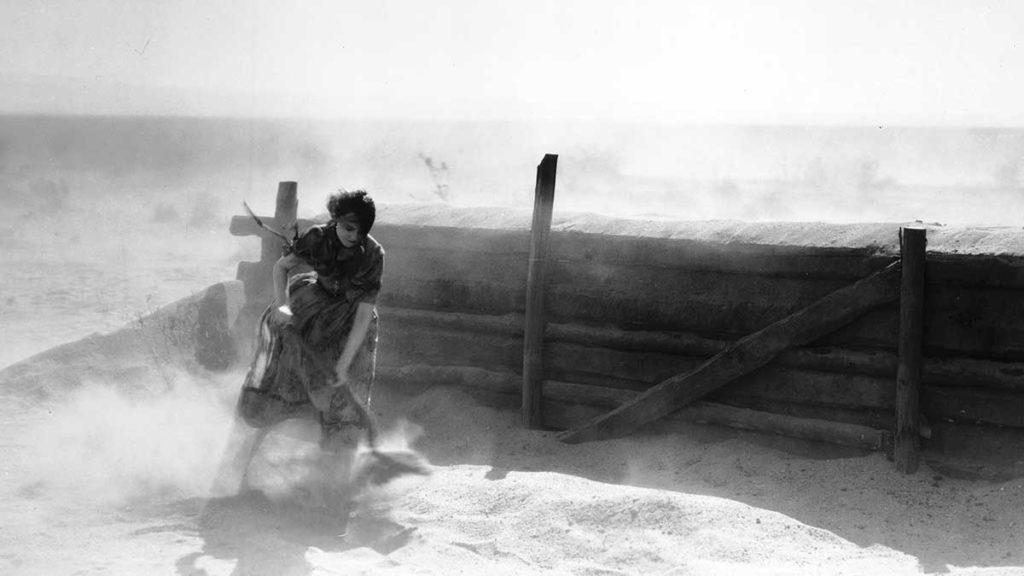
Saturday, November 12 @ 11:30am / Music Box Theatre
THE WIND
Directed by Victor Sjöström • 1928
At the twilight of the silent era, after playing leading roles in big-budget adaptations of established classics such as The Scarlet Letter and La Bohème, Lillian Gish prevailed upon M-G-M to let her make a film of The Wind, a contemporary supernatural novel by Dorothy Scarborough. The story of a Virginia socialite (Gish) visiting her cousin’s ranch in Texas and slowly being unraveled by the constant howl of the wind received an unusually elemental screen treatment from M-G-M’s top screenwriter, Frances Marion, and Swedish director Victor Sjöström. There are romantic entanglements (Lars Hanson as the kindly Swedish cowboy Lige) and even elements of cornpone comic relief, but they all pale next to the sheer force of the wind itself. Gish described the Mojave Desert shoot as “my worst experience in film making. Sand was blown at me by eight airplane propellers and sulfur pots were also used to give the effect of a sandstorm. I was burned and in danger of having my eyes put out.” (And it wasn’t just the actors who suffered. “Film coating melted from its celluloid base,” recalled Gish. “With temperatures at 120° F, it was impossible to develop the film. Finally the technicians packed it frozen and rushed it to the Culver City laboratories to be thawed out and developed.”) Understandably skeptical that an audience would buy a ticket for a vacation to hell, M-G-M sat on the film for over a year, and eventually released it when silent pictures were rolling around like yesterday’s tumbleweeds. The Wind earned unsympathetic and downright vituperative reviews in 1928 (Variety scolded that the source material was “just naturally poison for screen purposes”), but would soon be recognized as one of the key masterworks of the silent screen, a psychologically rich and visually dynamic dispatch from a world worn to tatters. (KW)
75 min • Metro-Goldwyn-Mayer • 35mm from Park Circus
Live musical accompaniment by Dennis Scott
Preceded by: “Cowboy Jazz” (S & E Enterprises, 1920) – 7 min – 35mm from the Library of Congress
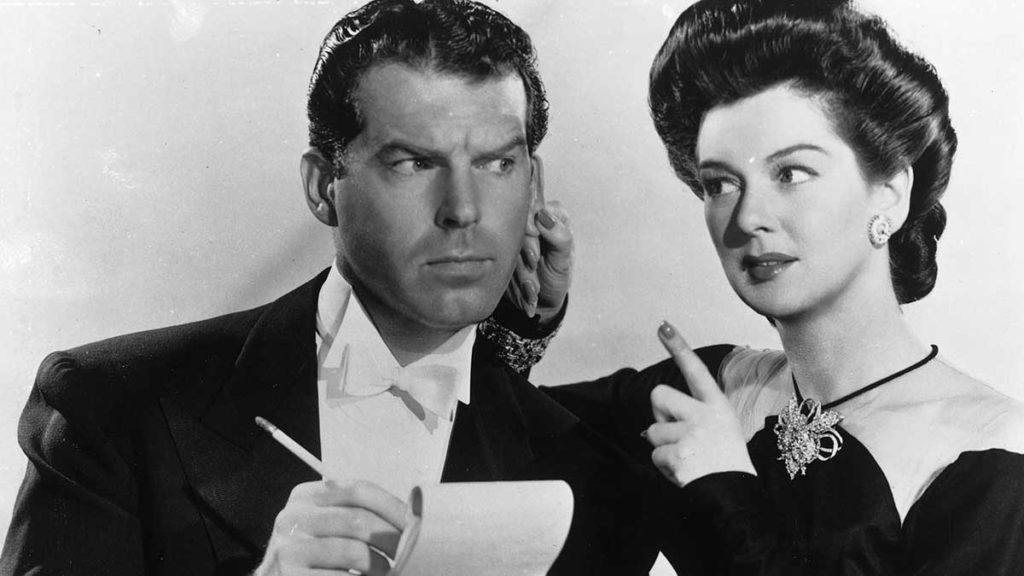
Wednesday, November 16 @ 7:30pm / NEIU
TAKE A LETTER, DARLING
Directed by Mitchell Leisen • 1942
In His Girl Friday (1940), Rosalind Russell demonstrated her supreme competence in assaying an unsentimental, mile-a-minute role originally conceived for a man. In doing so, Russell established herself as Hollywood’s go-to girl boss, a factotum of feminine power and a magnet for masculine anxiety. Take a Letter, Darling cashes the check that His Girl Friday wrote, casting Russell as A.M. “Mac” MacGregor, a ruthless advertising executive who’s run through her share of fair-haired male secretaries. (They might be okay if they could type as quickly as they declare their treacly love for the boss — cause for immediate dismissal.) Enter Tom Verney (Fred MacMurray), a dreamy painter who needs a new gig to support his art. (Don’t worry: Fred is “properly masculine as the not-too-bright secretary,” Variety assured exhibitors.) Mac needs a man around the office for appearance’s sake, a beard who can signal to the wives of prominent clients that she isn’t on the prowl for stray husbands. Originally announced as a Preston Sturges project, Take a Letter, Darling felicitously wound up under the direction of Mitchell Leisen, a bisexual sophisticate who had risen through the studio ranks through his talent for costume design and set decoration. An emotionally versatile director whose glimmering style often softened the provocative implications of his films, Leisen here gently ribs the gender racket under cover of Paramount’s prim studio polish. (KW)
92 min • Paramount Pictures • 35mm from Universal
Preceded by: “Getting a Job” (Encyclopedia Britannica Films, 1954) – 16 min – 16mm
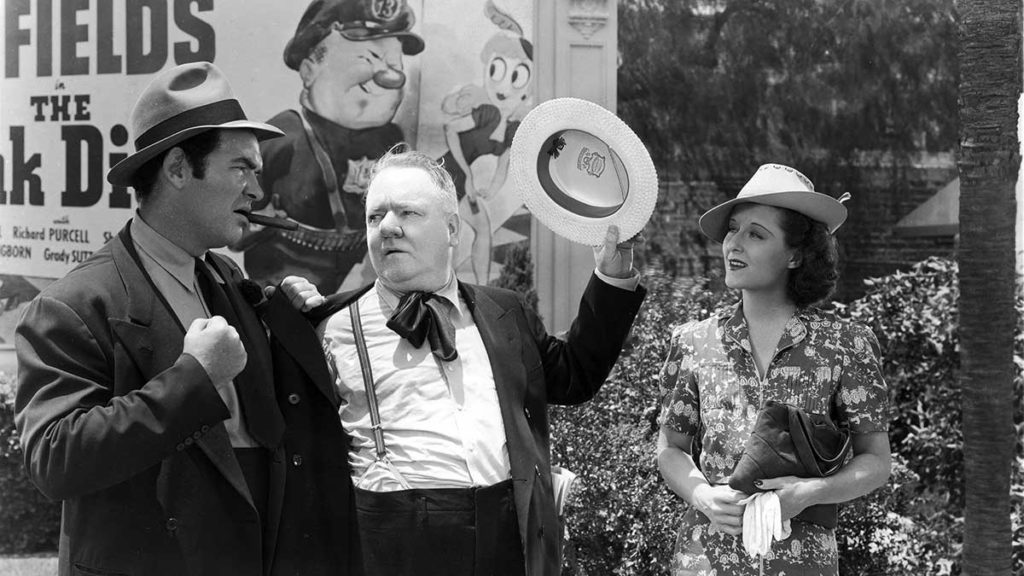
Wednesday, November 23 @ 7:30pm / NEIU
IT’S A GIFT
Directed by Norman Z. McLeod • 1934
CFS comedic hero W.C. Fields stars as Harold Bissonette (pronounced Biss-on-AY!), an incompetent grocer and put-upon family man with lofty dreams of owning an orange ranch in sunny California. The film begins with a quiet but side-splitting scene of mild domestic hell in a shared bathroom (“You want me to cut my throat? Keep that up.”) and what follows is an unrelenting 68 minutes of Fields being terrorized and debased by nearly everyone and everything he encounters, including his wife, his children, his neighbors, his customers, his dog, and a coconut. Directed by Norman McLeod (who’d previously directed Fields as Humpty Dumpty in the stunningly weird pre-Code Alice in Wonderland), and co-starring Kathleen Howard as Mrs. Biss-on-AY and Baby LeRoy in his usual role as a devil child, it’s a perfect film for anyone who’s ever had to pry themselves mentally or physically out of a trash can, or just wants to laugh at someone else doing it. Which is to say, all of us! (RL)
68 min • Paramount Pictures • 35mm from Universal
Preceded by: W.C. Fields in “The Dentist” (Leslie Pierce, 1932) – 22 min – 16mm
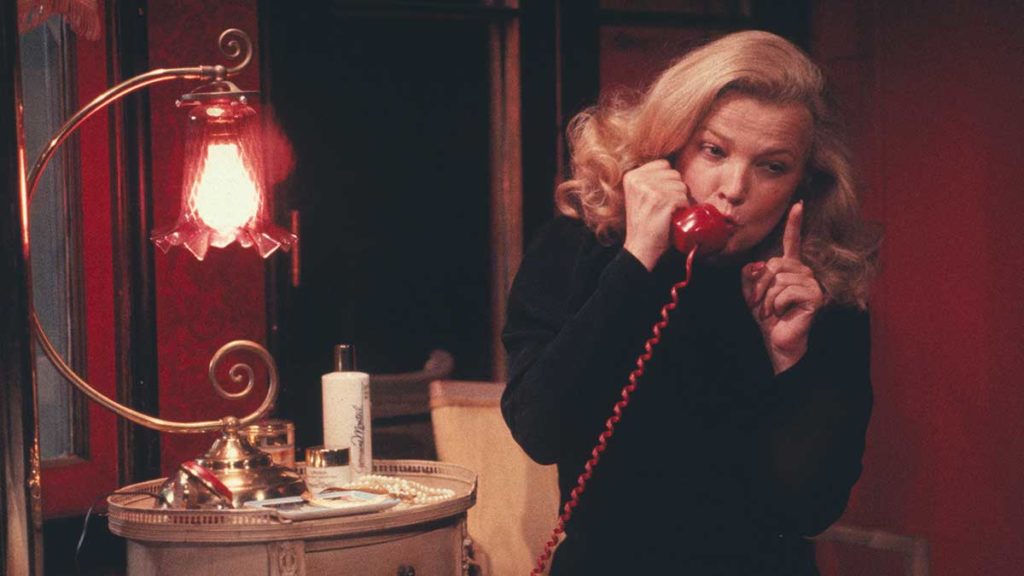
Monday, November 28 @ 7:00pm / Music Box Theatre
LOVE STREAMS
Directed by John Cassavetes • 1984
“Love is a stream. It’s continuous. It doesn’t stop.” Director John Cassavetes’s final masterpiece (he’d be diagnosed with fatal cirrhosis of the liver during production) takes its title from these lines, a nakedly romantic sentiment that sounds like a curse when spoken during divorce proceedings by the mentally unstable Sarah Lawson (Gena Rowlands, Cassavetes’s real-life partner). Over the course of the film’s bruising, hysterical 141 minutes, Sarah and her brother Robert, a celebrity writer played with louche charm by Cassavetes himself, will try to rein in their considerable dysfunctions for just long enough to find an outlet for the surplus of love that’s slowly eating away at both of them. For Robert, this means pursuing a series of younger paramours and making a disastrous attempt to connect with his long-estranged son. Sarah, meanwhile, rebounds from the dissolution of her marriage with an ill-conceived European vacation and trips out to the bowling alley “looking for the sex.” More than twenty years after Shadows marked him as the standard-bearer for American independent film, Cassavetes found an unlikely backer in The Cannon Group, beloved purveyors of Death Wish sequels and Chuck Norris vehicles whose mulish pursuit of prestige would also lead them to financing films by Raúl Ruiz, Norman Mailer, and Jean-Luc Godard. While in the past Cassavetes would be knee-capped working with other people’s money, Love Streams wound up being the director’s most uncompromising film, an unruly amalgam of musical numbers, searing family drama, slapstick comedy, and surrealist interludes that’s like nothing else in American cinema. (CW)
141 min • The Cannon Group Inc. • 35mm from Park Circus
Preceded by: Cassavetes trailer reel
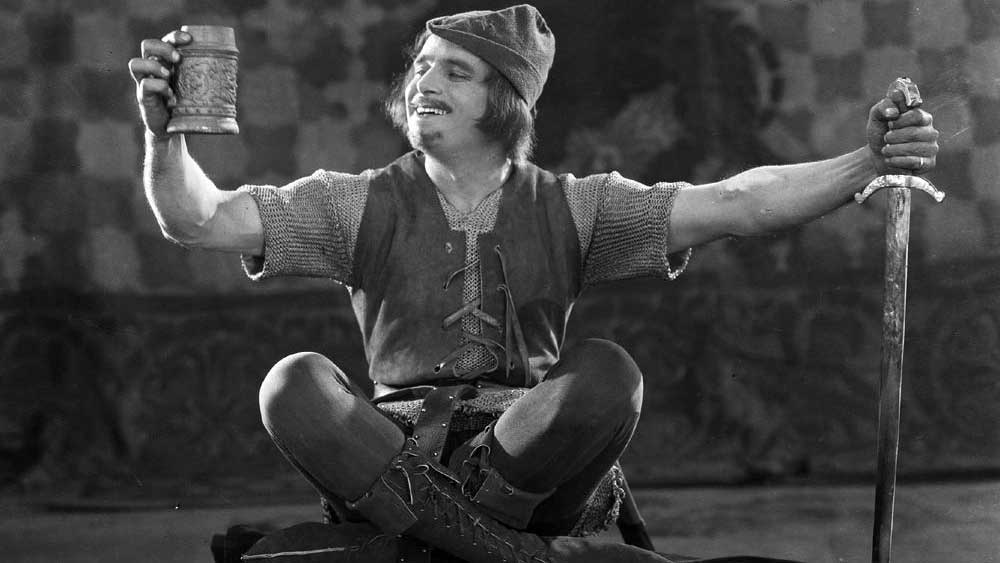
Thursday, December 1 @ 7:00pm / Music Box Theatre
DOUGLAS FAIRBANKS IN ROBIN HOOD
Directed by Allan Dwan • 1922
Douglas Fairbanks began his film career making unpretentious comedies and Westerns, but after the success of The Mark of Zorro in 1920 he fixed upon a new formula that inscribed his athleticism and hijinks within elaborate historical tableaux. Fairbanks was big, and the parts he played had to match. As the name implies, Douglas Fairbanks in Robin Hood — the actual title used on screen, in all advertising materials, and for the copyright registration — placed the actor on a co-equal pedestal with the legendary outlaw. (Perhaps Doug actually loomed a bit larger than Robin: the film was made by the Douglas Fairbanks Pictures Corporation for release through United Artists, the distribution entity Fairbanks co-founded, and written by “Elton Thomas,” a Fairbanks pseudonym.) The film begins with a melancholy tour of English ruins before restoring the monuments of the Age of Faith through the magic of the movies. Douglas Fairbanks in Robin Hood boasted some of the largest sets of the silent era and featured thousands of extras. (The budget for the costumes alone, designed by Mitchell Leisen, could have funded two or three contemporary pictures.) This version of the story devotes significant time to the Crusades and Robin’s relationship with King Richard (Wallace Beery) before the bandits even begin to gallop through Sherwood Forest. But rest assured that, once assembled, Robin’s band is the merriest of Merry Men, leaping and frolicking like drunken elves who live in a treehouse. Only Fairbanks could sketch a Robin Hood whose life is “dedicated to revenge — bitter — but joyous” and really mean it! Restored by The Museum of Modern Art with support from the Celeste Bartos Fund for Film Preservation. (KW)
127 min • United Artists • 35mm from the Museum of Modern Art
Live musical accompaniment by Dennis Scott
Preceded by: Silent Serial Trailers (1921-1927) – 8 min – 16mm
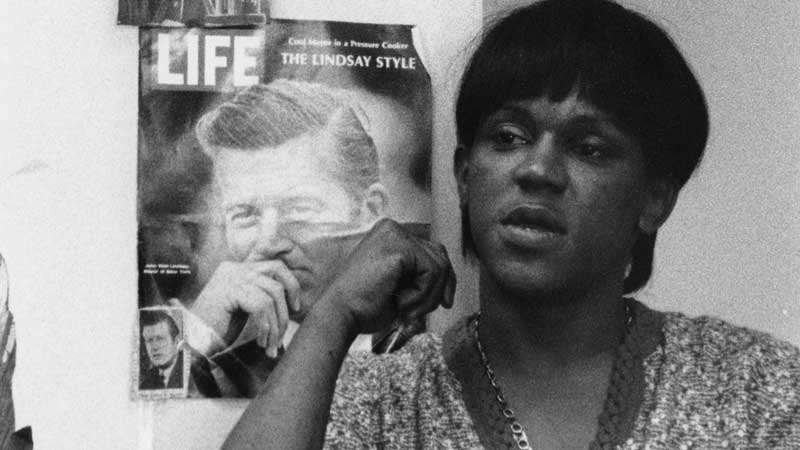
Wednesday, December 7 @ 7:30pm / NEIU
HOSPITAL
Directed by Frederick Wiseman • 1970
Cinephile snobs love to lament the inferiority of TV, but the boob tube has nurtured some of the towering celluloid achievements of the 20th century: Krzysztof Kieslowski’s Dekalog, R. W. Fassbinder’s Berlin Alexanderplatz, Marcel Ophuls’s The Sorrow and the Pity, and much of the output of documentarian Frederick Wiseman. The beatific bard of Boston has yet to receive an Academy Award nomination, but he won two Primetime Emmys way back in 1970 for Hospital, his fourth documentary feature. (It was subsequently added to the National Film Registry in 1994, the first so-called “TV movie” to be so honored.) Commissioned by PBS antecedent National Educational Television for its flagship program NET Journal, Hospital chronicles the emergency room and environs of New York’s Metropolitan Hospital. In his typically incisive style, Wiseman sketches a portrait of the institution and explores its workaday operations without privileging any one perspective or person over another: the patients, doctors, nurses, ambulance drivers, psychiatrists, family members, and even a chaplain all have their say. “I expected to find a lot of bureaucratic callousness and a hardened staff, indifferent to the problems of the poor,” recalled Wiseman. “What I generally found, though, were a lot of doctors, nurses, and hospital personnel who really cared, trying to deal with the medical consequences of bad housing, illiteracy, no jobs, malnutrition, and so on.” Originally shot and distributed in 16mm, Hospital is one of several early Wiseman productions that has recently been preserved and blown up to 35mm through the joint efforts of the Library of Congress and Zipporah Films, Wiseman’s production company. (KW)
84 min • OSTI Films • 35mm from Zipporah Films
Preceded by: “Greedy for Tweety” (Friz Freleng, 1957) – 7 min – 35mm
✰ Sean Baker’s Fabulous Christmas Double Bill ✰
at the Music Box on Monday, December 12 at 7:00 PM
$11 single feature / $15 double feature
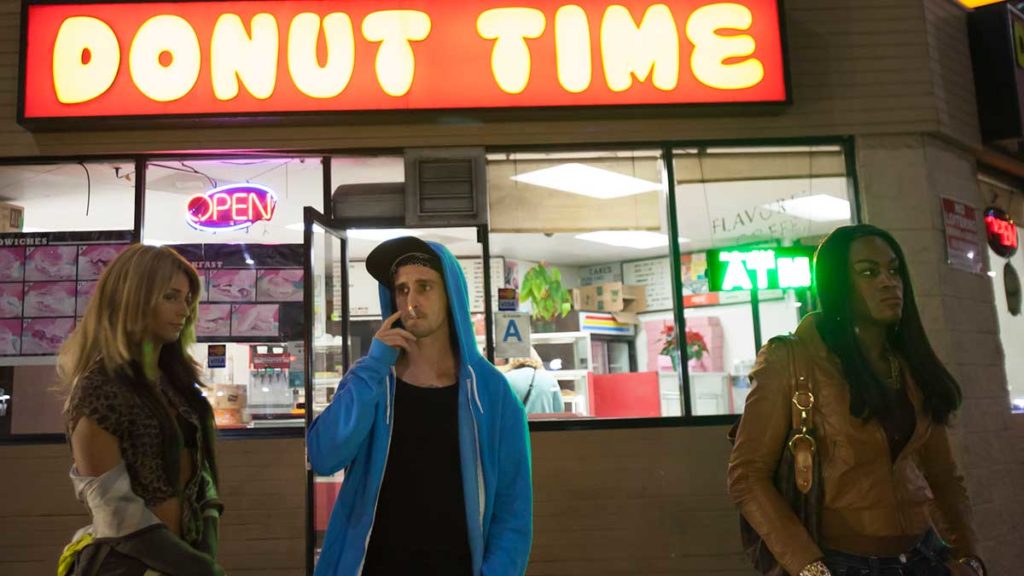
TANGERINE
Directed by Sean Baker • 2015
“Merry Christmas Eve, bitch.” Tangerine hurls us into the world of trans sex worker Sin-Dee (Kitana Kiki Rodriguez) as she returns to Santa Monica Boulevard fresh off a 28-day sentence for crimes of the job, and just in time for the holiday. Sin-Dee meets her friend and fellow working girl Alexandra (Mya Taylor) at Donut Time (the epicenter for our film) for a Christmas Eve breakfast consisting of one donut. Alexandra accidentally lets all hell break loose by leaking that Chester, Sin-Dee’s lover and pimp, may or may not have been unfaithful with “real fish” while Sin-Dee was locked up. Now dead broke and on a mission to find Chester, unholy drama is unleashed on anyone in Sin-Dee’s scorned path — while Alexandra is just trying to lay low, get her money, and keep Sin-Dee’s chaos at bay so she can focus on promoting her cabaret performance later that night. Our protagonists guide us through a drug-fueled motel visit, an LA bus ride (complete with a hostage situation), an unforgettable carwash, and a wintry Los Angeles gilded by digital color saturation and December light. Filmmaker Sean Baker (The Florida Project) shows us the hardships and resilience of this community, and the importance of humor and friendship no matter what. Tangerine was famously shot on iPhone cameras and was briefly a poster child for the democratizing potential of “prosumer” digital technologies for independent filmmakers; Baker, a long-time advocate of analog film exhibition, commissioned 35mm prints of Tangerine in 2022, one of which we will be screening for this show. (TV)
88 min • Magnolia Pictures • 35mm from Sean Baker
+ + + Screening With + + +

ALL ABOUT MY MOTHER
Directed by Pedro Almodóvar • 1999
In Spanish with English subtitles
CFS invited Sean Baker, director of Tangerine, to pick a movie to join his own on a double bill. He writes:
Almodóvar has been an inspiration in so many ways – his artistry, his audaciousness, his sensitivity, his love of cinema and on and on. I am honored to have my film screen with one of his masterpieces.
A garish and gallant smash-up of Tennessee Williams and All About Eve, Pedro Almodóvar’s All About My Mother is a melodrama of found families, maternal anxiety, and unholy desires. Celia Roth plays a former actress who reconnects with the father of her child after a sudden tragedy, and finds a new community of trans sex workers, nuns, and thespians on the fringes of Barcelona. With All About My Mother, Spain’s queer enfant terrible achieved a new level of international recognition, with Almodóvar picking up the Best Director prize at Cannes, and an Academy Award for Best Foreign Language Film. (KW)
101 min • El Deseo • 35mm from Sony Pictures Classics
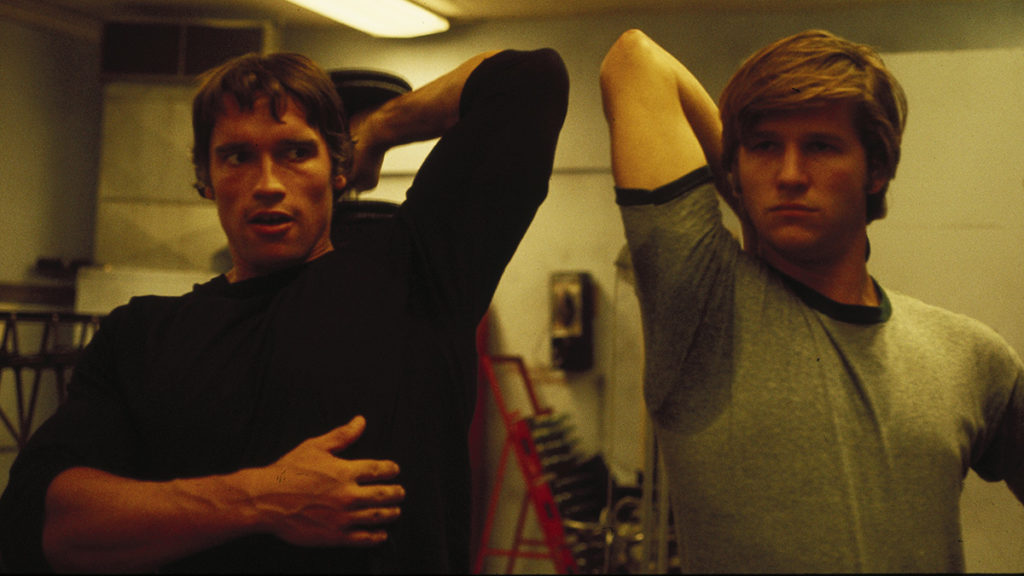
Wednesday, December 14 @ 7:30pm / NEIU
STAY HUNGRY
Directed by Bob Rafelson • 1976
Following the dissolution of his pioneering production company BBS, Bob Rafelson (Head) hunkered down in Birmingham, Alabama, to spin an au courant story about the fitness craze of the mid-’70s. A hyper-specific work of commercially minded regional filmmaking, Stay Hungry stars Jeff Bridges as kid millionaire Craig Blake, who returns home to his family mansion after his parents’ deaths. Craig needs to make a name for himself to be accepted by his country club uncle, so he starts working for some local real estate sharks who aspire to build the tallest high-rise in Birmingham. The last property left on the block is Olympic Spa, a gym owned by Thor Erickson (R.G. Armstrong), an oily businessman with a peephole in the floor of his office. Craig tries to buy this pit, but soon falls in with its regulars, including front desk clerk Mary Tate Farnsworth (Sally Field) and gym rat Joe Santo (Arnold Schwarzenegger), who wears a superhero costume while training to be Mr. Universe. There’s homoerotic energy galore around Joe, particularly when he leads Craig into a forest for some mysterious assignation — but it turns out to be just a bluegrass fiddling contest! (You haven’t lived ’til you’ve seen Arnold with a tiny fiddle balanced on his bicep.) Nowhere near as (self-) serious as Rafelson’s Five Easy Pieces, Stay Hungry nevertheless evokes a particular moment in American life with mirth and terror: a Dirty South bicentennial hangover. (KW)
102 min • United Artists • 35mm from Park Circus
Preceded by: “Vim, Vigor, and Vitaliky” (Fleischer Studios, 1936) – 7 min – 16mm
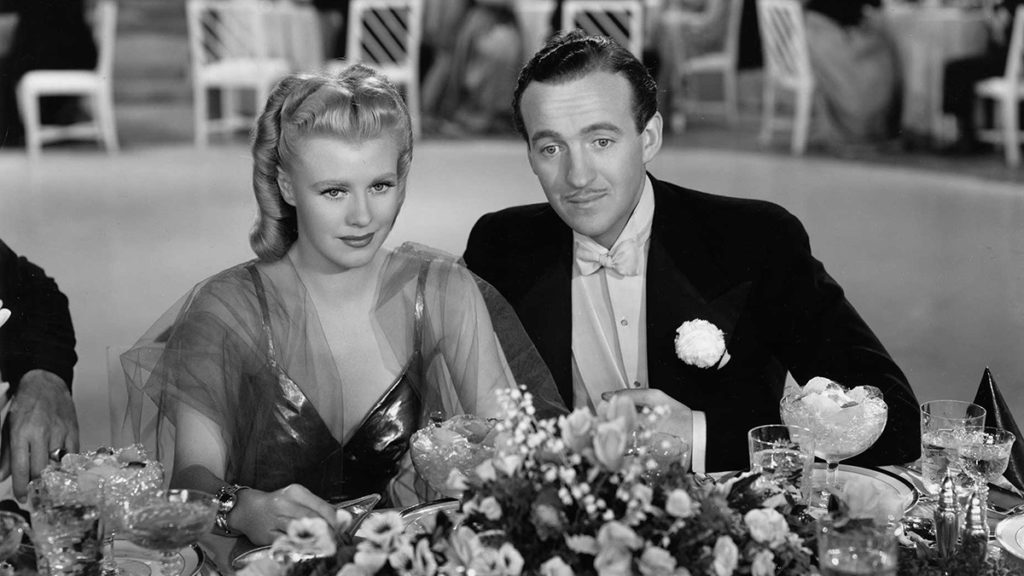
Note: This screening was cancelled when NEIU unexpectedly closed campus one day early for their winter break. We hope to reschedule!
Wednesday, December 21 @ 7:30pm / NEIU
BACHELOR MOTHER
Directed by Garson Kanin • 1939
While Hays Code enforcement in the late ’30s saw Hollywood studios tamping down any potentially scandalous content in their pictures, the ascendant screwball comedy genre proved one of the safest remaining places for the movies to tackle taboo subject matter. A teary melodrama asking audiences to sympathize with an unwed mother might have been a tough sell to Production Code enforcers, but make it a farce and you have Bachelor Mother, one of RKO’s biggest hits of 1939. Single and facing unemployment at the end of the Christmas season, department store salesgirl Polly Parrish (Ginger Rogers) is more worried about keeping the lights on than she is by any thoughts of her potential future progeny. Nonetheless, maternity is thrust upon her when she’s mistaken for the mother of an infant abandoned outside of an orphanage and word gets back to her soft-hearted boss, David (David Niven). Overnight, Polly’s job becomes a permanent position, with a raise, so long as she takes back the baby which was never actually hers. David, in turn, sees to it that Polly and her child have their every need met. But when David extends an invitation to spend New Year’s Eve with him, Polly begins to suspect his interests may not be strictly humanitarian, and after she accepts, rumors begin to circulate about who could possibly be the father of Polly’s baby. Supported by the considerable chemistry of its leads, Bachelor Mother was a turning point in both of their careers, elevating Niven to marquee status and demonstrating Rogers could be a formidable box office draw outside of her game-changing run of musicals with Fred Astaire. As a class-conscious holiday romance, its earthy charm still comes through as strong as ever, capturing all the melancholy and wonder of the season in one package and putting a bow on it. (CW)
82 min • RKO Radio Pictures • 16mm from Wisconsin Center for Film and Theater Research
Preceded by: Bachelor Father: “Bentley Versus the Girl Scouts” (Jerry Hopper, 1957) – 30 min – 35mm
Programmed and Projected by Julian Antos, Becca Hall, Rebecca Lyon, Tavi Veraldi, Kyle Westphal, and Cameron Worden. Additional film capsule by Julia Reinitz.
Research Associate: Mike Quintero
Heartfelt thanks to:
Shayne Pepper, Cyndi Moran, Robert Ritsema, Ernie Kimlin, Chris Rodriguez, & Jose Aguinaga of Northeastern Illinois University; Brian Andreotti & Ryan Oestreich of the Music Box Theatre; David Antos; Olivia Babler, Yasmin Desouki, Julia Lacher, & Nancy Watrous of Chicago Film Archives; Sean Baker; James Bond of Full Aperture Systems; Rob Byrne, Kathy Rose O’Regan, & Stacey Wisnia of the San Francisco Silent Film Festival; Dennis Chong, Jesse Chow, Liam Berney, Jason Jackowski, & Eric Chin of Universal; Chris Chouinard of Park Circus; Justin Dennis of Kinora; Michael DiCerto of Sony Pictures Classics; Tiffany Greenwood of Swank Motion Pictures; Dave Jennings of Sony Pictures Repertory; Steven Lloyd; Edda Manriquez and Charles Rogers of the Academy Film Archive; Jeff Milam of Ecometric Solutions; Jake Perlin of The Film Desk; Rahul Roy of Magnolia Pictures; Dennis Scott; Lynanne Schweighofer, Rob Stone, & Mike Mashon of the Library of Congress; Katie Trainor & James Layton of the Museum of Modern Art; Erica J. Hill of Zipporah Films; and Gabriel Wallace. Particular thanks to CFS research associate Mike Quintero, CFS board members Mimi Brody, Steven Lucy, Brigid Maniates, & Artemis Willis, & CFS advisory board members Brian Block, Lori Felker, & Andy Uhrich.
And extra special thanks to our audience, who make it all possible!

